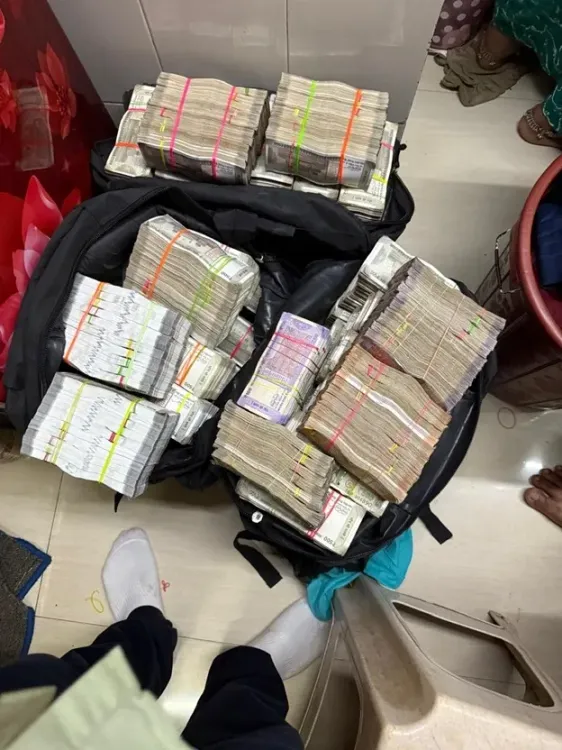What Did the ED Discover in Mumbai's Dabba Trading Investigation?

Synopsis
Key Takeaways
- ED raids led to the seizure of Rs 3.3 crore in cash.
- Luxury items and cash-counting machines were also confiscated.
- Several online betting platforms are under investigation.
- Key individuals linked to the illegal activities have been identified.
- The case is being pursued under the PMLA.
Mumbai, July 15 (NationPress) The Enforcement Directorate (ED) conducted a series of raids at four different sites in Mumbai on Tuesday as part of an ongoing inquiry into a significant dabba trading and online betting operation, as detailed in a statement from the agency.
During these operations, the ED confiscated unaccounted cash amounting to Rs 3.3 crore, alongside luxury watches, jewelry, foreign currency, high-end vehicles, and numerous cash-counting machines.
The agency's investigation focuses on various platforms believed to be enabling illegal trading and betting practices.
Among the applications under scrutiny are VMoney, VM Trading, Standard Trades Ltd, IBull Capital, LotusBook, 11Starss, and GameBetLeague.
These platforms were reportedly functioning as white-label online betting applications, with administrative rights allegedly transferred based on profit-sharing agreements.
The ED has pinpointed several hawala operators and fund handlers associated with this case. Digital gadgets and financial records discovered during the raids are presently under examination.
This investigation falls under the Prevention of Money Laundering Act (PMLA) and is based on a First Information Report filed at Lasudiya Police Station in Indore. The FIR invokes Sections 319(2) and 318(4) of the Bhartiya Nyaya Sanhita.
The ED's findings indicate that Vishal Agnihotri, the purported beneficial owner of VMoney and 11Starss, initially obtained the administrative rights to the betting platform LotusBook under a 5 percent profit-sharing scheme. He subsequently transferred most of these rights to Dhaval Devraj Jain, retaining only 0.125 percent for himself, while Jain controlled 4.875 percent.
Additionally, Jain, in partnership with his associate John States, also known as Pandey, allegedly created a white-label betting platform and provided it to Agnihotri for the operation of 11Starss.in.
The ED has also identified Mayur Padya, also known as Padya, a notorious hawala operator, as the individual managing cash-based fund transfers and payments associated with the betting activities.
The agency confirmed that the investigation is ongoing.










